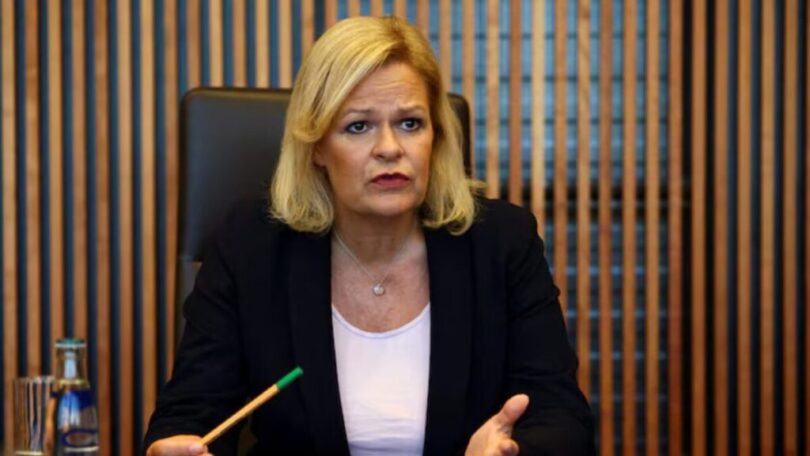BERLIN (Amu TV): Germany is holding confidential discussions with third countries to facilitate the deportation of criminals to Afghanistan without engaging directly with the Taliban, Interior Minister Nancy Faeser announced on Wednesday.
“We are pursuing confidential negotiations with various states to open ways to make deportations to Afghanistan again,” Faeser told the Neue Osnabruecker Zeitung. “German security interests clearly come first,” she emphasized.
Germany ceased all deportations to Afghanistan and closed its embassy in Kabul following the Taliban’s return to power in 2021. The debate over resuming deportations resurfaced after a 25-year-old Afghan was accused of fatally stabbing a police officer last month.
Officials are considering deportation routes through third countries, such as Uzbekistan, according to Der Spiegel.
This issue will be a key topic at a meeting of regional interior ministers on Wednesday, alongside discussions on processing asylum cases in non-EU countries. Faeser’s ministry has commissioned a report on the feasibility of establishing asylum processing centers in third countries, similar to existing agreements between Italy and Albania and between Britain and Rwanda.
The proposal has found support among opposition conservatives. However, the report, seen by AFP, notes that many experts have “expressed skepticism and criticism about the legal and practical implementation” of such a model.
Berlin has taken a firmer stance on immigration in an effort to counter the growing influence of the far-right Alternative for Germany (AfD), which has capitalized on immigration issues. The AfD recently secured second place in Germany’s European Parliament elections, outpacing Chancellor Olaf Scholz’s Social Democrats.
Despite the push for resuming deportations to Afghanistan, some senior government officials have voiced concerns. Foreign Minister Annalena Baerbock stated earlier this month that deportations to Afghanistan “cannot avoid key constitutional and, above all, security issues.”







